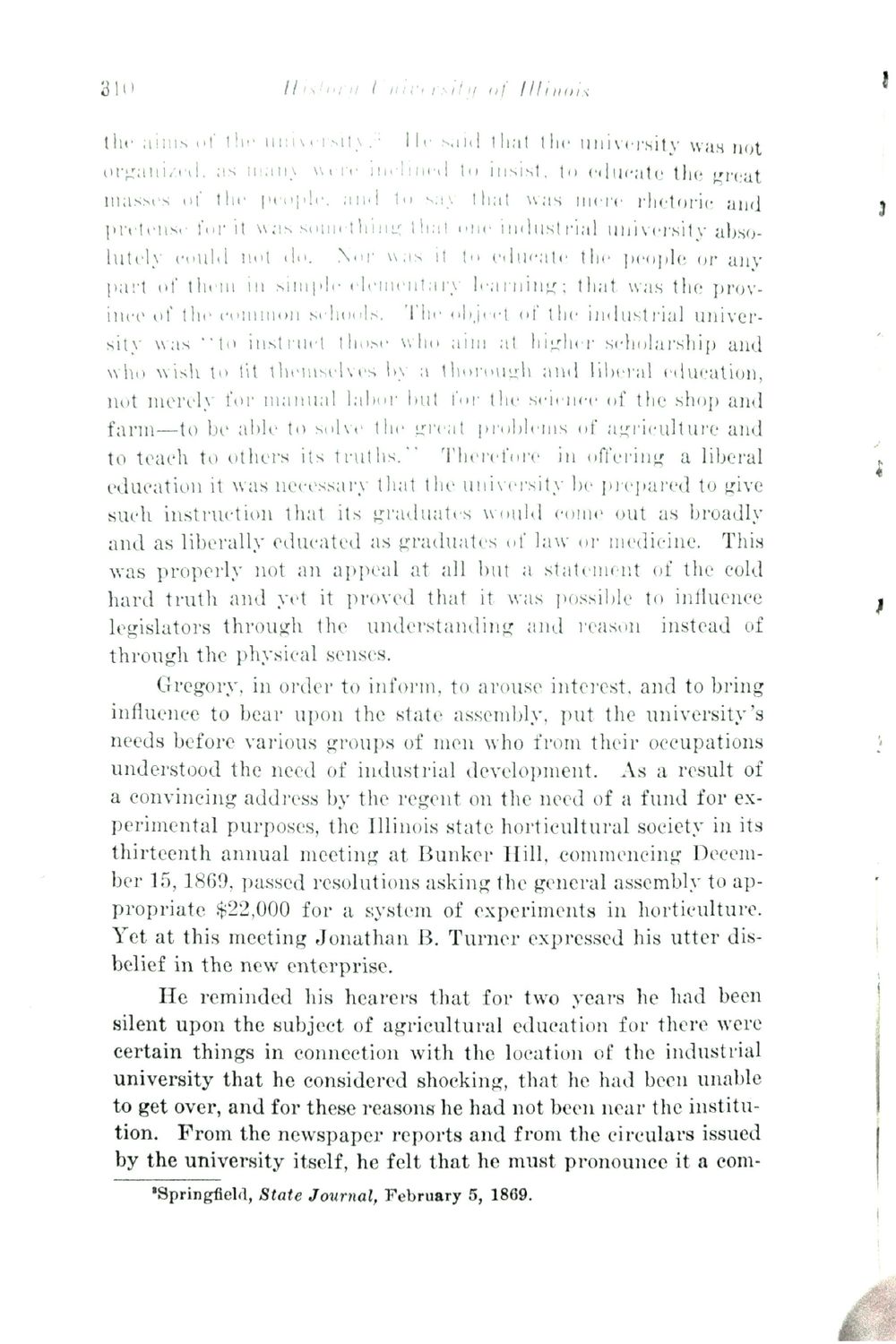| |
| |
Caption: Book - History of the University (Powell)
This is a reduced-resolution page image for fast online browsing.

EXTRACTED TEXT FROM PAGE:
810 History University of Illinois the aims of the university.8 He said that the university was not organised, as many were inclined to insist, to educate the great masses of the people, and to say that was mere rhetoric and pretense for it was something that one industrial university absolutely could not do. Nor was it to educate the people or any part of them in simple elementary learning; that was the province of the common schools. The object of the industrial university was "to instruct those who aim at higher scholarship and who wish to fit themselves by a thorough and liberal education, not merely for manual labor but for the science of the shop and farm—to be able to solve the great problems of agriculture and to teach to others its truths.73 Therefore in offering a liberal education it was necessary that the university be prepared to give such instruction that its graduates would come out as broadly and as liberally educated as graduates of law or medicine. This was properly not an appeal at all but a statement of the cold hard truth and yet it proved that it was possible to influence legislators through the understanding and reason instead of through the physical senses. Gregory, in order to inform, to arouse interest, and to bring influence to bear upon the state assembly, put the university's needs before various groups of men who from their occupations understood the need of industrial development. As a result of a convincing address by the regent on the need of a fund for experimental purposes, the Illinois state horticultural society in its thirteenth annual meeting at Bunker Hill, commencing December 15,1869, passed resolutions asking the general assembly to appropriate $22,000 for a system of experiments in horticulture. Yet at this meeting Jonathan B. Turner expressed his utter disbelief in the new enterprise. He reminded his hearers that for two years he had been silent upon the subject of agricultural education for there were certain things in connection with the location of the industrial university that he considered shocking, that he had been unable to get over, and for these reasons he had not been near the institution. From the newspaper reports and from the circulars issued by the university itself, he felt that he must pronounce it a com•Springfield, State Journal, February 5, 1869.
| |